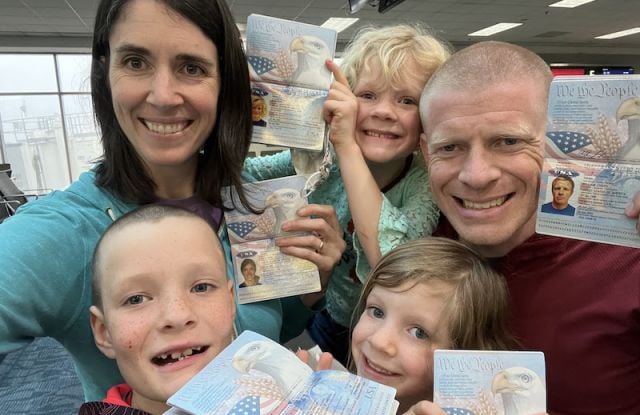Fathers Need to Share the ‘Sacred No’ With Their Kids

So many people struggle with a father wound – they needed fathering and didn’t get it, and they spend their lives subconsciously trying to fill the gaps and get to wholeness.
Richard Rohr talks about how the role of a father revolves around the “sacred no” – he protects and establishes boundaries, even at the risk of conflict. A father wounds his children when he fails to protect them by answering the probes and attacks of others with a sacred no.
Young people wrestling to define the world and their place in it need boundaries. If the answer to every question is “yes,” then boundaries are not established – things lose their value. Only the answer “no” can establish those boundaries – and that is a fathering role (as in, “No, you may not date my 13 year-old daughter”).
While mothers can and do tap into the wisdom and strength of will to answer questions with “no,” generally speaking, it conflicts with their nurturing nature. One consequence is that children without fathers often struggle with boundaries. Their self-will runs amok.
When families and communities bond and develop social compacts which include prohibitions and protections, they need people who will make good on their promises to one another. Historically, this has required fathers to become warriors, committed to protecting not just the community, but its values and the boundaries they represent. They stand prepared to fight against those who would cross the boundaries.
Our Christian faith in America is decaying precisely because the fathers have become neutered, have lost the sacred no inside themselves, and can no longer offer it to their children, much less as warriors to defend values in the faith.
In fact, the concept of the warrior has become so associated with the nation-state and its ambiguous conflicts in places like Iraq and Viet Nam, that the practice of accommodation (saying “yes” when really the answer should be “no”) has taken precedence over the practice of defending boundaries.
Men need to reclaim their stewardship of the sacred no. Too many men have gone the way of the Samurai, trading in their swords for easy chairs. There are things worth fighting for and dying for.
Too many parents are more concerned about the physical risk their child may incur as they struggle to find their faith in a foreign land than they are with the spiritual risk of passing on to them the inheritance of a stillborn faith.
Those of us with father wounds, who, even as adults struggle with the issues of protection we never received, need to consider the consequences of passing our issues on to our children.



Yes! Yes! Yes! Our society continues to pursue life w/o pain or conflict instead of pursuing truth, boundaries, and virtue (not to mention God Himself). We don’t like things that cost us (money, time, effort, or pain). I don’t like things that cost, to tell the truth. So, not only does God need to remind me of the value of pursuing things that cost me, but He does so by putting words like yours into my life. Thanks for the reminder and encouragement, Seth. Keeping pursuing the Father, no matter the cost.
As a man who continues to have the Living God expose the impact of a series of father wounds in my life (incest,beatings,lack of affirmation and the need to “become an adult” too soon) I know personally what you are addressing.
There is the pain too of seeing my own sin & failures even in the midst of a heart for God and the children He entrusted to me as a father.
Hurt people “hurt people.” It’s messy. And it’s real. And simple human answers can’t compete with the simple truth that only God can fix a broken manor woman.
He cares about our character more than our comfort.
And He loves giving us good gifts. So in that paradox we live, knowing that He sees everything from the perspective of eternity.
And all of us are broken. Some people just pretend better. And I’m sure glad we met more than twenty years ago. I love what God is doing through you and Karen.
thanks, Butch. can’t say i love the process, but it beats the alternative.